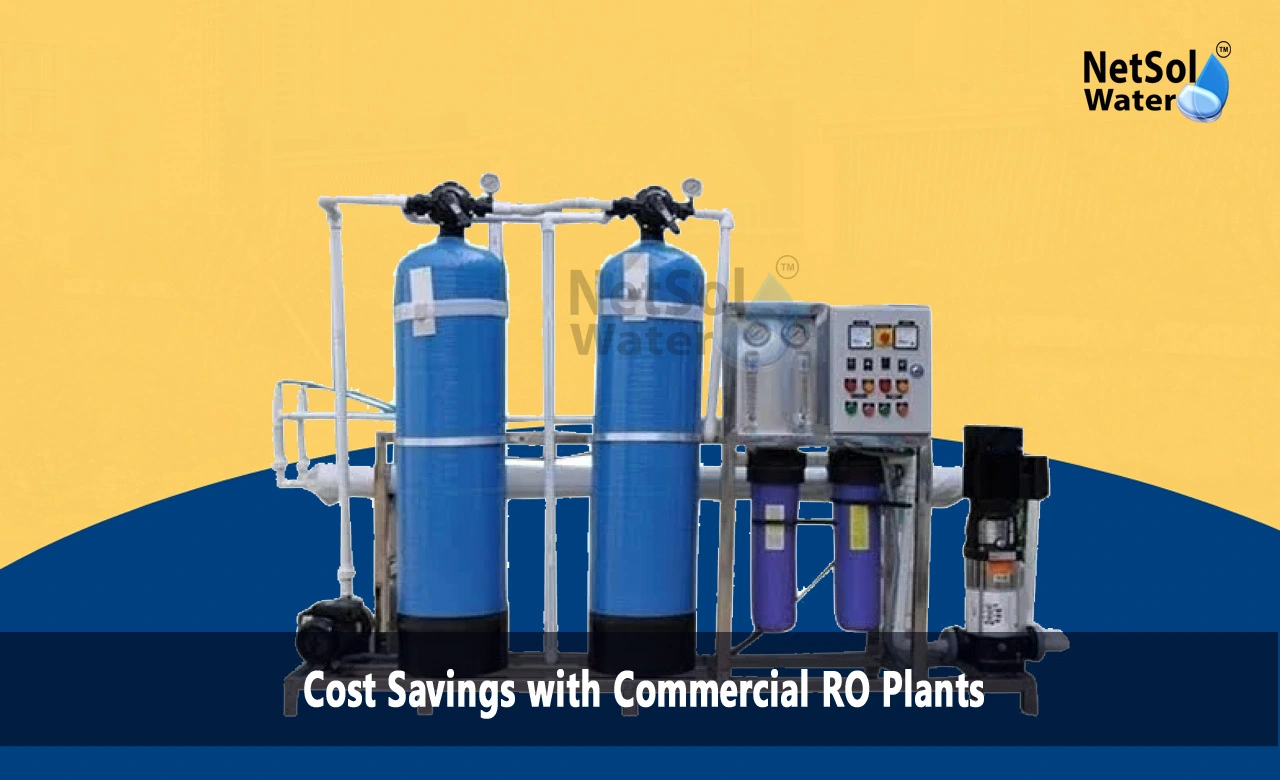Cost Savings with Commercial RO Plants
High-purity water is an essential resource for daily operations and production processes in various commercial sectors.Whether utilized for product formulation, equipment cleaning, heating/cooling cycles, or general maintenance needs, a reliable supply of pristine treated water is critical to preserving quality standards and business continuity.However, acquiring treated water by trucking it in or sourcing it from municipal utilities can incur significant recurring expenditures over time. As conventional freshwater availability dwindles amid population growth, contamination issues, and climate change effects, costs for water procurement from these traditional channels are also escalating steadily.
Installing an on-site commercial reverse osmosis (RO) desalination plant presents a compelling solution allowing businesses to secure their own high-quality water supply while realizing substantial long-term cost savings. In this blog, we outline the key areas where RO plants drive down operating expenditures, boost efficiency and asset preservation.
Reducing Purchased Water Costs
For many commercial operations, direct expenditures on procuring municipal or hauled water can consume 10-25% of their total water services budget. Fees for purchasing pre-treated potable water continue rising as utilities modernize aging infrastructure and environmental compliance expenses escalate.Companies investing in on-site RO production effectively insource their own water treatment process. While requiring upfront capital, these systems unlock access to low-cost brackish groundwater or surface water sources that are substantially less expensive on a volumetric basis compared to retail potable rates.
RO plants recover 60-80% of their intake flows as purified product water ready for use. The residual reject concentrate stream then only requires inexpensive disposal to sewer or trucking offsite in most cases. For water-intensive industries like food/beverage production, textiles, manufacturing, or hospitality, the savings over purchased water expenses provide attractive payback periods typically under 3-5 years.
Eliminating Need for Pretreatment Chemicals/Equipment
When facilities procure raw municipal or surface water, extensive pretreatment measures are often required before utilization given contaminants and impurities like dissolved ions, particulates, microbes, and trace chemicals present. Common pretreatment steps include:
• Water softening using salt regeneration or chemical precipitation
• Sand/multimedia filtration to remove suspended matter
• Activated carbon adsorption to strip organics and dechlorinants
• Chemical disinfection using oxidants to neutralize microbial growth
These treatment stages not only carry costs for chemical consumables and equipment maintenance, but also labour for system operation and monitoring. Pretreatment processes can represent 30+% of a plant's total water management expenses.
By contrast, RO desalination plants using advanced pretreatment membranes like ultrafiltration effectively produce purified water from essentially any source in a single integrated step. Harsh chemical treatments become unnecessary.
Reducing Maintenance and Equipment Replacement Costs
Steam boilers, cooling towers, heat exchangers, piping networks, and manufacturing equipment all rely on a continuous supply of high-purity treated water to operate reliably and deliver maximum working lives. When untreated or inadequately pretreated makeup water is used, various forms of scaling and corrosion take their toll:
• Brine/mineral deposits accumulating on heat transfer surfaces
• Microbial growth enabling pitting, cracking of metal components
• Water hardness depositing calcium/magnesium precipitates leading to fouling
• Sediments, suspended particulates abrading and eroding piping systems
This damage forces facilities into reactive maintenance spending – allocating budget to descaling/decontaminating process equipment, replacing piping/components susceptible to untimely failure, and generally shortening the productive lifespan of capital assets. Conservative estimates peg maintenance costs 25% higher when inadequately treated makeup water is used.RO plants eliminate these downtime risks and avoidable expenditures by delivering a highly polished product stream virtually devoid of ions, particles, microbes, and residual impurities. Implementing RO for boiler makeup, cooling tower feeds, and process water streams translates into maximized asset lifecycles, decreased parts/labour costs, and superior reliability in meeting production schedules.
Enabling Water Reuse and Recycling
For manufacturers, laboratories, and industrial processors discharging wastewater streams containing valuable product remnants, water recycling is tremendously appealing on paper. Unfortunately, conventional treatment technologies often prove insufficient or cost-prohibitive to polish these effluents for safe direct reuse in closed-loop processes.
With RO desalination however, up to 80-90% of wastewater can be recovered for immediate recycling by removing salts, organics, heavy metals, and other contaminants down to trace concentrations. Facilities exploiting RO for comprehensive reuse/recycling realize enormous savings on:
• Purchased makeup water needs for processes
• Discharge fees for sending wastewater to municipal treatment
• Product losses via wastewater disposal previously considered unavoidable
The attractive payback period associated with recycling precious water and product resources through RO makes it virtually self-funding for intensely water-consumptive processes amenable to closed loops like electroplating, textiles production, and food/beverage manufacturing.
Conclusion
Commercial reverse osmosis desalination offers significant financial incentives beyond high-purity water production. RO technology eliminates chemical pretreatment infrastructure and external water procurement expenses, enhances asset reliability, and recycling opportunities. Although initial capital costs may be a hurdle, rapid paybacks within 3-5 years justify RO plant installation, especially for water-intensive operations.
Reverse Osmosis (RO) technology helps ensure business continuity by safeguarding against future water scarcity risks caused by droughts and environmental regulations that increase water service costs. Using RO technology proactively can help businesses gain a competitive advantage, support sustainable water strategies, improve brand reputation, and promote responsible water stewardship.
Netsol Water is Greater Noida-based leading water & wastewater treatment plant manufacturer. We are industry's most demanding company based on client review and work quality. We are known as best commercial RO plant manufacturers, industrial RO plant manufacturer, sewage treatment plant manufacturer, Water Softener Plant Manufacturers and effluent treatment plant manufacturers. Apart from this 24x7 customer support is our USP. Call on +91-9650608473, or write us at enquiry@netsolwater.com for any support, inquiry or product-purchase related query.



